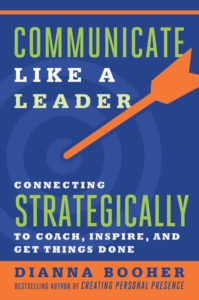


Your success often depends on the emotional intelligence of people you hire in strategic positions. That means you need to make hiring decisions based on solid information—not just gut instinct and first impressions.
Those hiring interviews require well-planned questions that solicit genuine answers which surface real opinions, character traits, values, and skills. Most applicants have rehearsed for likely questions. So asking for two or three examples will get you past the practiced answers and give you real insights.
Consider the following interview questions to produce meaningful information about a potential job candidate:
Responses here will reveal several things: How informed are they on local happenings, current affairs, politics, or pop culture? Does their response suggest they can’t think of anyone, or simply that they can’t narrow their choices? Were all choices from public life rather than personal or social circles? That may suggest few mentors or role models in their life. Why? If all choices are personal acquaintances, that may suggest noninvolvement in the community or activities outside the home. Why? At least, their answers will reveal their values.
Their answers will reveal values and ethics. You’re also judging their capacity to feel empathy and compassion. Further, the action they took in this situation tells you about their ability to persuade others to stop the mistreatment or otherwise correct the situation. Their response also tells you about their tolerance for risk (if they had to act alone to stop the mistreatment). Did they risk their own reputation or even their own job to do the right thing?
Their response gives you some perspective on what happenings they consider “routine” versus “calamity” and “particularly bad.” But what you’re really looking for is their coping mechanisms—both emotional stability and resourcefulness. Listen carefully to the retelling for words like “so upset,” “so angry,” “had a major meltdown,” “went ballistic,” “frantic,” “just beside myself with worry.”
Did they personally solve the problems or did someone else have to take charge? How much and for how long did this problem or these problems affect their work and life? How does their idea of “serious” compare with yours? Does their reaction seem appropriate or extreme? How did their judgment and solution compare to what you consider appropriate for the situation?
I’ve yet to meet the job applicant who admits to having weak communication skills. In my three decades of reviewing résumés and making hire decisions, job candidates routinely claim some version of “excellent oral and written communication skills.” This exercise aims to test that boast. As the applicant explains the concept, interrupt with questions along the way to see how they react.
—Do they overview the idea clearly—and then fill in the details?
—Do they organize their thoughts coherently and logically?
—Do they skip steps and definitions, making assumptions about what you “should” know?
—Does their body language suggest impatience?
—Do they “talk down” to you, demonstrating arrogance that will likely cause conflict with coworkers or customers on any future job?
—Is their language lazy, imprecise, and flippant? Again, it’s representative of the language they’ll use with customers as your rep in casual conversations.
Certainly, your interview questions have to meet the job criteria. And these questions assume the job candidate must interact with people and use sound judgment. Given that’s a valid assumption, these four questions can mean the difference between a strategic hire and a costly termination—not for technical competence but for toxicity.
Learn more ways to communicate with job candidates in Communicate Like a Leader: Connecting Strategically to Coach, Inspire, and Get Things Done

